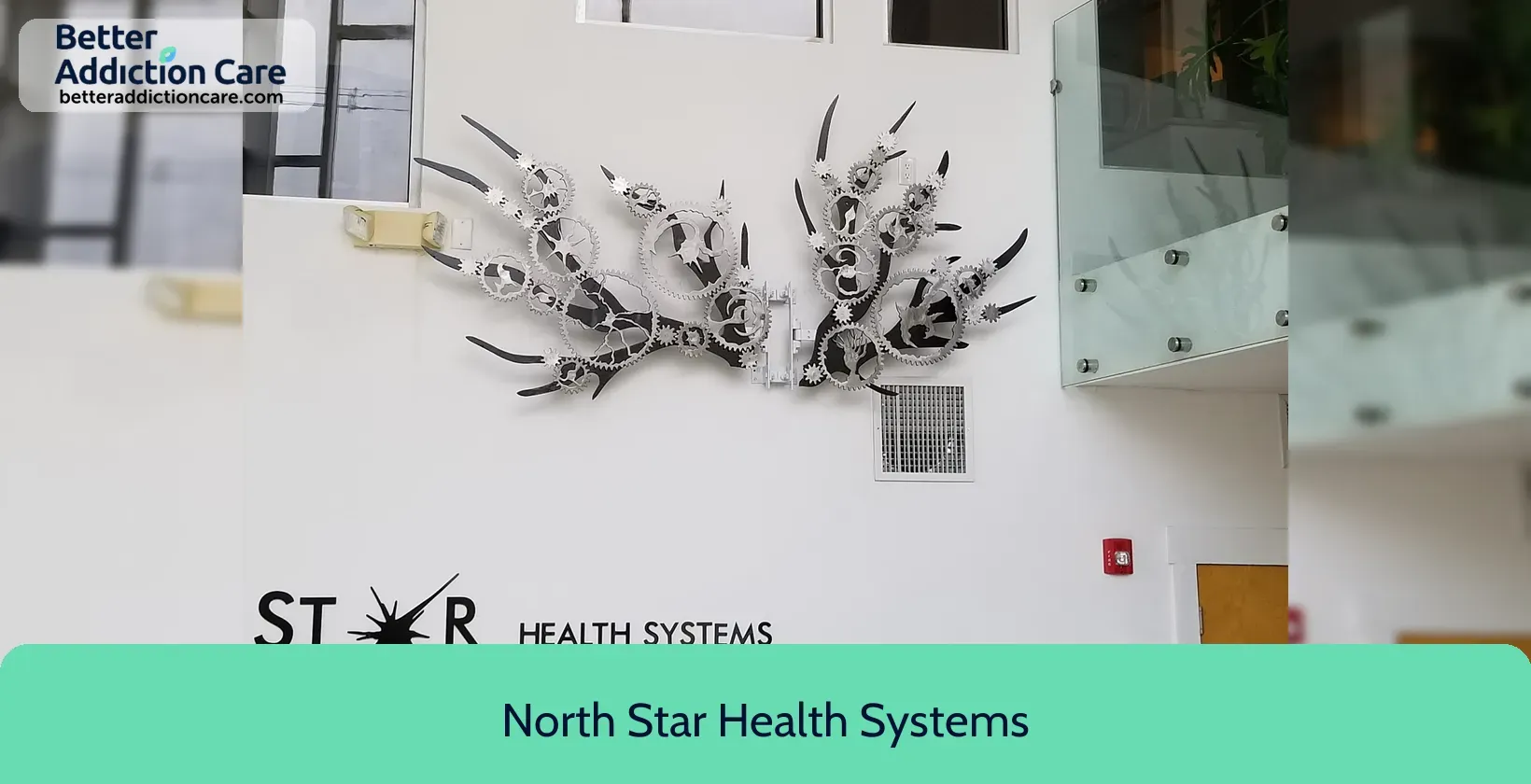North Star Health Systems
Overview
Addressing a range of drug use disorders, such as alcoholism, opiate dependence, and co-occurring mental health illnesses, Northstar Health Systems, situated in Bayonne, New Jersey, offers comprehensive addiction treatment and mental health treatments. The structured programs offered by Northstar include flexible outpatient treatment alternatives that allow patients to continue living their life while undergoing therapy, as well as supervised medical detox, which is intended to properly manage withdrawal. For people who need a more organized approach in an outpatient situation, their intense outpatient treatment provides an increased degree of assistance.
By providing customized services that recognize the particular difficulties that men and women encounter, Northstar customizes its programs to meet the requirements of each client and creates a nurturing atmosphere in which they may get targeted treatment. In order to provide a well-rounded and customized rehabilitation experience, programs are created to address the unique mental, emotional, and physical problems that each client may encounter.
Northstar Behavioral Health, which is housed in the Bayonne Omiros Building, employs a group of passionate specialists who are all focused on helping each client reach their full potential in terms of meaningful, balanced health and quality of life. The center prioritizes educational programs in behavioral health, life coaching, and stress management, providing clients with the skills they need to overcome social obstacles and become more resilient overall. Northstar maintains a caring, customized approach, guaranteeing each client's privacy and dignity.
Northstar enhances people's dignity and capacity to live satisfying lives by empowering them on their journey to independence and long-term recovery via the combination of psychosocial rehabilitation, mental health education, and motivating techniques.
North Star Health Systems at a Glance
Payment Options
- Cash or self-payment
- Medicare
- Private health insurance
- Self-pay options
Assessments
- Comprehensive mental health assessment
- Comprehensive substance use assessment
Age Groups
- Seniors or older adults
- Young adults
- Children/adolescents
- Adults
- Seniors
Ancillary Services
- Case management service
- Court-ordered outpatient treatment
- Education services
- Family psychoeducation
- Illness management and recovery
Highlights About North Star Health Systems
6.71/10
With an overall rating of 6.71/10, this facility has following balanced range of services. Alcohol Rehabilitation: 8.00/10, Drug Rehab and Detox: 6.00/10, Insurance and Payments: 6.00/10, Treatment Options: 6.85/10.-
Alcohol Rehabilitation 8.00
-
Treatment Options 6.85
-
Drug Rehab and Detox 6.00
-
Insurance and Payments 6.00
Treatment At North Star Health Systems
Treatment Conditions
- Mental health treatment
- Alcoholism
- Substance use treatment
- Co-occurring Disorders
- Opioid Treatement
Care Levels
- Outpatient
- Detoxification
- Outpatient detoxification
- Outpatient day treatment or partial hospitalization
- Intensive outpatient treatment
Treatment Modalities
- Couples/family therapy
- Group counseling
- Cognitive behavioral therapy
- Dialectical behavior therapy
- Integrated Mental and Substance Use Disorder treatment
Ancillary Services
Languages
- Spanish
Special Programs
- Clients with co-occurring mental and substance use disorders
- Veterans
- Active duty military
- Members of military families
- Criminal justice (other than DUI/DWI)/Forensic clients
Get Help Now
Common Questions About North Star Health Systems
Contact Information
Other Facilities in Bayonne

7.16
DISCLAIMER: The facility name, logo and brand are the property and registered trademarks of Beacon of Hope - Dorothy Rose - Psychotherapy and Hypnotherapy, and are being used for identification and informational purposes only. Use of these names, logos and brands shall not imply endorsement. BetterAddictionCare.com is not affiliated with or sponsored by Beacon of Hope - Dorothy Rose - Psychotherapy and Hypnotherapy.

